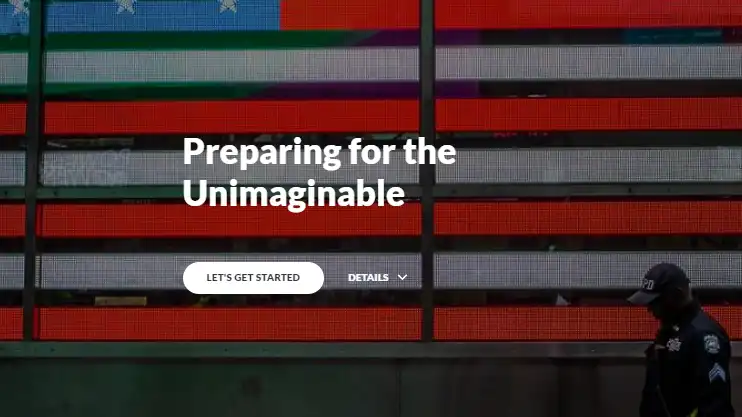
NOTE: This is a free resource, NOT an eLearning course. There is no pretest or posttest, and you will not receive a certificate of completion for reviewing this resource.
Resource Overview: Preparing for the Unimaginable: How Chiefs Can Safeguard Officer Mental Health Before and After Mass Casualty Events, an interactive publication, provides expert advice and practical tips that law enforcement executives can implement to safeguard officer mental health before and after a mass casualty event.
The guidance, including the personal contributions of four police chiefs and numerous officers who have lived through such incidents, can help officers to heal emotionally, manage the public, deal with the media, build relationships with other first responder agencies, and much more. Though most agencies have trained and equipped their officers for immediate response to mass casualties, few have prepared their personnel for the psychological fallout. Tragic events can have a profound effect on first responders, who may suffer emotional distress that lingers long afterward.
To help the Newtown (Connecticut) Police Department cope with the murder of 26 people, including 20 children, at Sandy Hook Elementary School, the COPS Office reached out to the National Alliance on Mental Illness (NAMI) in 2013 to provide guidance. Preparing for the Unimaginable is the result of NAMI’s work with Newtown’s then police chief, Michael Kehoe. With Chief Kehoe’s leadership, NAMI convened an expert advisory group of police chiefs who had experienced mass casualty events in their communities, along with the mental health professionals who advised them, to gather lessons learned and guidance for other chiefs. NAMI also sought guidance from numerous police leaders, mental health professionals, and trauma and media experts. The result is this e-Guide, which educates chiefs and command staff about officer mental wellness, provides steps to preparing for the mental health impact of a mass casualty incident, and walks them through the crisis and the aftermath.
While events like Sandy Hook have raised awareness of the challenges that officers face, the day-to-day impact of police work is much greater. Fortunately, there are many steps that law enforcement leaders can take now to build resilient agencies, whether or not they ever experience a mass casualty incident. There are also ways to prepare for the possibility of such an incident. This guide can serve as a resource for agencies interested in getting started.
Authors: Laura Usher; Stefanie Friedhoff; Sam Cochran; Anand Pandya
Original Publication: 2016
Target Audience: Community stakeholders interested in safeguarding the mental health of law enforcement professionals.
Cooperative Partners: This interactive e-Guide is based on the 2016 written publication of the same name, which was funded by the U.S. Department of Justice, Office of Community Oriented Policing Services (COPS). This online version was developed by the Virginia Center for Policing Innovation (VCPI) and was supported by cooperative agreement 2018-CK-WXK-001 by the U.S. Department of Justice, Office of Community Oriented Policing Services (COPS).
